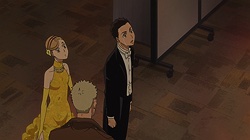 |
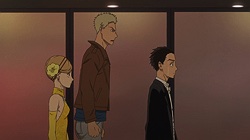 |
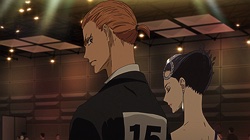 |
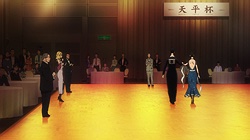 |
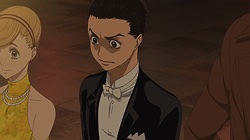 |
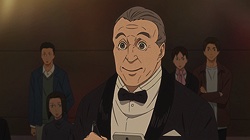 |
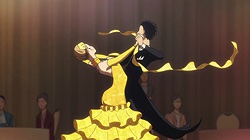 |
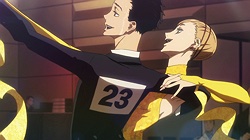 |
 |
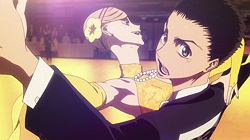 |
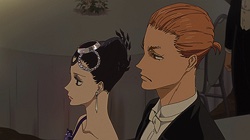 |
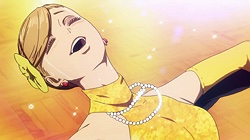 |
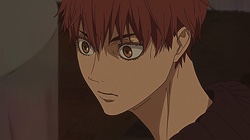 |
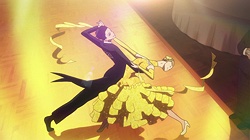 |
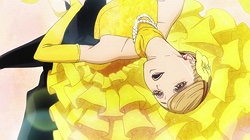 |
 |
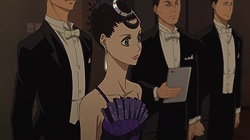 |
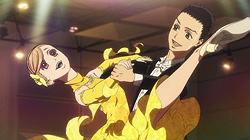 |
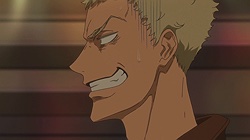 |
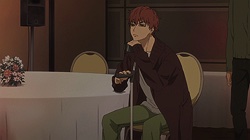 |
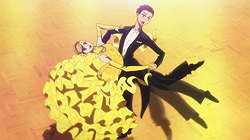 |
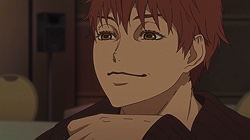 |
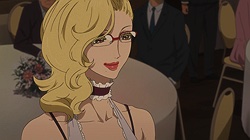 |
 |
 |
 |
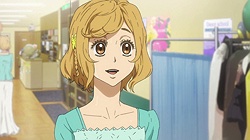 |
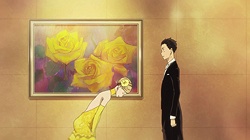 |
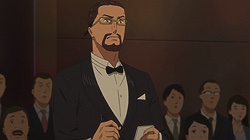 |
 |
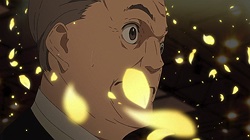 |
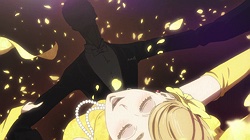 |
 |
 |
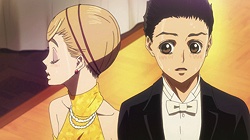 |
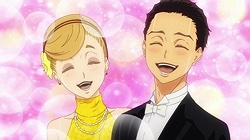 |
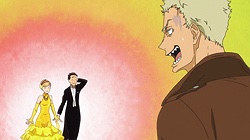 |
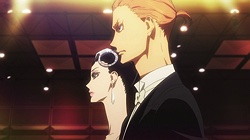 |
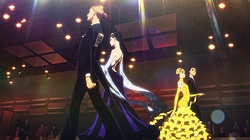 |
「花と額縁」 (Hana to Gakubuchi)
“Flower and Frame”
The only thing in this show longer than the necks is the minutes…
I can say this much for certain – the more I learn about this sport, the less I understand it. It’s certainly nothing specific to ballroom dancing – I suspect most sports/arts (and this one is some of both) are like that when you take the time to deep dive into them. But competitive dance remains a genuine puzzle to me. What constitutes success is so colored by the pair aspect of it – I wonder if pairs figure skating (or even more, ice dancing) is the same way?
The dominant – well, only – theme of this episode is “flower and frame”. Like so much about competitive ballroom, it seems relatively simple but is in fact very complicated. The woman is the flower, the man is the frame – I get the idea. It wasn’t the sort of frame I was imagining last week (more like a structural one), but it makes sense. Where the concept gets difficult is the question of balance. How is a leader supposed to fulfill the role of frame without disappearing into the background?
I guess if the answer to that question were easy, it wouldn’t be a professional sport. It points up that much more how surprising it is that Tatara is as successful as he is with his lack of experience. Sengoku cautions him to pace himself as he heads into the finals, but that’s the least of Tatara’s problems. Sengoku has prepared Tatara and Mako for their one-minute solo dance knowing that in the Tenpei Cup, it’s always a quickstep. But Marisa has foiled his plans by overriding the program and changing to a waltz. And when Tatara and Mako hit the floor, he’s shaking so hard the judges and audiences can see it.
It’s clear that Tatara has taken Kiyoharu’s advice to heart, and he and Mako have planned their strategy out in advance (and in secret). Just as clearly, Mako has never been put in this position before – though in his defense, Gaju did at least try and push her to assert herself in his boorish way. It strikes me that sibling partners are quite problematical in this sport, for the nuanced relationship between the older and younger will always be another complicating factor in the final equation. Tatara is nothing if not humble, and he embraces the idea that he needs to put his partner in the spotlight if anything too enthusiastically.
Here’s where my frustrating lack of understanding of this sport again asserts itself. Ask yourself this: if you’re standing in a museum or gallery looking at a Monet or Van Gogh, can you honestly say you’re going to remember what the frame looked like? If the judges and audience are staring only at Mako, why is that a technical flaw on Tatara’s part? Isn’t it the frame’s job to make people believe the painting is as magnificent as possible? I get that there’s a balance here – that if the leader s “greyed out” in the eyes of the judge, he’s taken the concept of framing too far. But it’s hard for me to see where that line is.
One thing I know is that Mako is unrecognizable from the dancer Gaju (and Marisa) knew. And that’s because she’s dancing with a leader willing to let that happen. Apparently the judges are supposed to grade on the leader’s technique and the symbiosis between the pair, and that if the judges aren’t looking at the leader’s technique, that’s a flaw. But it strikes my untrained eye that Tatara has in this case done the job he’s supposed to do. Apparently there’s more to it than that – and I guess Tatara and viewers like me are going to learn why that is together.
Preview
 |
 |
 |

Lucky for you, that you do not want to know these Cowboy Dance in the USA… They have also their rules and Synchronization.. alone these foot steps…
Also, i think the Judges knows that he is an Beginner…
https://randomc.net/image/Ballroom%20e%20Youkoso/Ballroom%20e%20Youkoso%20-%2009%20-%20Large%2036.jpg
SSSHHHHHHIIIIIIIIIIIIIIIIIIIIIIIIIP!!!
I think you guys are taking the “flower and frame” way too literal… may be partially the fault of how they kept putting the flower when they were explaining the concept. I would say pay more attention to what Marissa says about the foot work. Now, also… remember, this is not a painting that you are judging, but a performance… If you had a play with only two actors and one was great but the other one so average that you left the theater without remembering what the actor looked like… would you consider it a good play?
Whereas ballroom is an art and a sport… I would say that it is more about entertaining than just the beauty of it. That’s why they kept commenting on how Tatara was putting a performance. He didn’t have that many steps that would impress the audience… so, he did them and put them where it matter (right in front of the judges’ eyes). I think this is a very well thought off anime and makes me wonder if the creator has any dancing experience.
They implied that Tatara went beyond the usual ‘Frame and Flower’ route that dancers normally do. Tatara made it so that Mako would stand out more than he would, which is the original purpose, but to the point where the leader disappeared completely. So Tatara misunderstood the whole point and made his own version of a frame. Remember the whole point of the competition.
The judges look at both partners, but I’m guessing more so the leaders performance, because they’re the ones that the partner has to follow. I’m sure this is where the whole “follow my lead” thing people always hear when asking someone to dance.
So I’m actually starting to believe Gaju stopped dancing with Mako was because she was too passive towards him. Not that she was bad at dancing, but because they both lacked communication and that sense of “partnership”. What we saw in the flashback when Gaju asked her what she herself wanted, but because she says things like “not wanting to get in his way” that’s probably what made him feel like he was dancing alone? More proof when we see Mako tear up a bit when Tatara says the exact same thing that Mako said to Gaju. And I think at that moment she understood her weakness. At least that’s how I interpreted it.
Yeah, I get that he went beyond the usual. Where my lack of subtle understanding of competitive dance comes in is that I don’t know where that line is. He’s supposed to make the partner the show, and support her – but apparently he’s also supposed to impress the judges with his own technical skills. It’s a cloudy concept, which I guess is why one normally has to be really experienced and really skilled to compete at the highest level in this activity.
Summarize the plot of this episode to me. What you just said could be presented in like 3 minutes.
Excellent episode review G Enzo. You expressed my thoughts to a T. I feel the same confusion about where that line is when it comes to be a “frame” – and I’m Latin American (meaning the whole dance thing comes naturally to me due to social upbringing). I spent quite a while after the episode pondering about it…